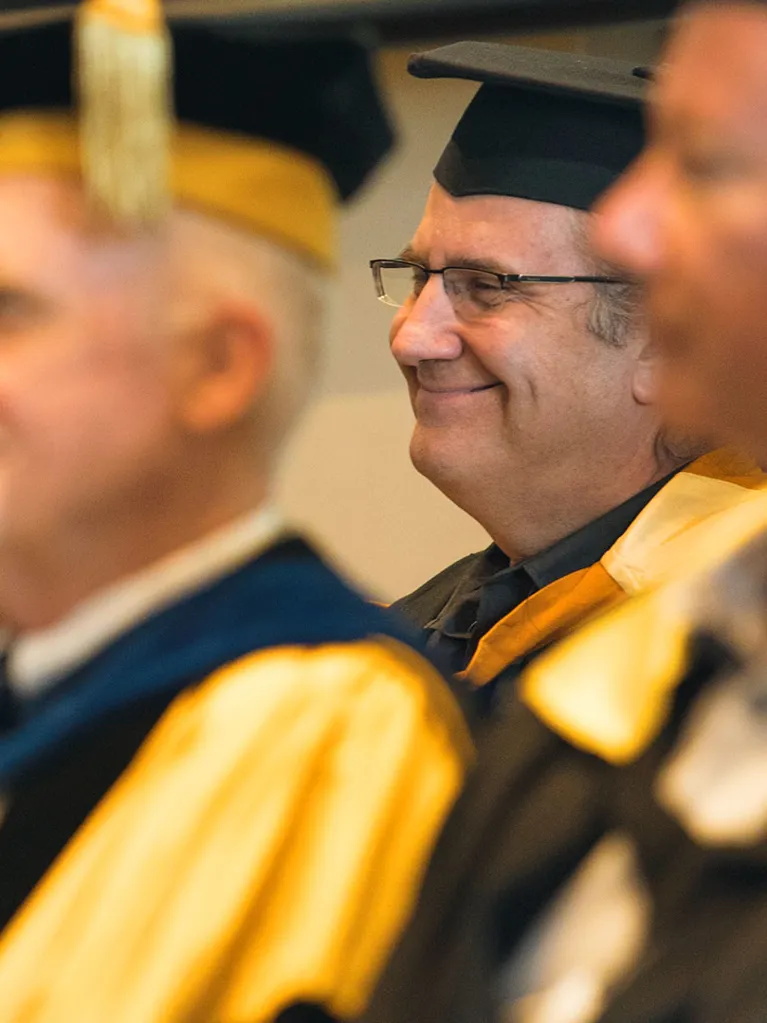The Academic Board is the primary source of advice to the JMC Board on matters relating to learning, teaching and scholarship; oversees all academic functions of the Academy, including academic governance, curriculum development, delivery and assessment. The Board provides academic leadership, exercises and promotes freedom of speech, and guides scholarship and staff research.
The functions of the Academic Board are:
- Assisting and advising the JMC Board on all matters relating to and affecting the Academy’s teaching activities and its educational programs, including:
- Rules governing awards and courses of study
- Admission of students
- Curriculum review process
- Assessment moderation process
- Recommending to the JMC Board the awarding of all academic qualifications.
- Recommending to the JMC Board the submission to TEQSA of completed applications for the accreditation of new courses and accreditation of existing courses.
- Overseeing and monitoring course delivery across all campuses and receive reports on same.
- Overseeing the development and implementation of academic policies and procedures and reporting and recommending to the JMC Board on same.
- Overseeing quality of learning, teaching, and scholarship.
- Ensuring students and lecturers have the opportunity to provide feedback on their educational and teaching experiences.
- Advising on educational aspects of the Academy’s Strategic Plan and Risk Management Plan.
- Developing academic aspects of the Quality Enhancement Framework.
- Developing detailed advice on new academic developments, priorities, and innovations.
- Receiving reports from and overseeing the work of the following Academic Board Committees:
- Learning and Teaching Committee
- Scholarship Committee
- Course Advisory Committees
- Curriculum Design and Delivery Committees
- Reporting directly to the JMC Board on the above matters.
Appointed Members
Elected Members (Fixed Term)
Ex-Officio Members
Governance Charter
Membership and Meeting Protocols
The protocols for membership and meetings of the Academic Board are as follows:
Membership of the Academic Board shall consist of:
- External members appointed by the JMC Board shall have a post-graduate qualification and university experience in a senior academic position.
- Internal representative members shall be one Head of Department from each campus chosen by the Heads of Department from that campus, and one student representative.
- The student representative member shall be appointed on a rotational basis allowing fair representation of all campuses.
- Ex-officio members: Chair of the Learning and Teaching, Chief Executive Officer, Dean, Associate Dean (Scholarship), Head of Postgraduate Studies.
- The Chair of the Academic Board shall be appointed by the JMC Board from among the external members of the Board.
- The members of the Academic Board are provided with all relevant information prior to meetings and are obligated to preserve commercial-in-confidence information.
Frequency of Meetings
The Academic Board shall meet at least four times per year. Additional meetings may be called with the Chair’s approval.
Secretariat
The Dean is responsible for providing secretariat services to the Academic Board.
Communicating with the Academic Board
For further information on communicating with the Academic Board please contact your local representative.
Learning & Teaching Committee
JMC Academy’s Learning and Teaching Committee is a committee of the Academic Board. It is the principal advisory committee on learning and teaching, assists the Board in carrying out its academic governance and leadership functions and provides recommendations on the maintenance of academic standards and high-quality learning as well as on policy, initiatives, and innovation.
